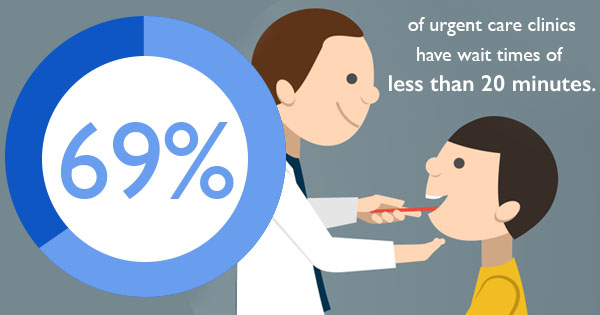
When a medical problem arises that requires attention, you have a couple of options. You can go to your primary care physician, go to the emergency room, or go to an urgent care center. Determining which of these options to choose can often be a confusing process, though. But what is urgent care, anyway? Fortunately, the answers aren’t too difficult to find.
What is urgent care?
These facilities are walk in health clinics, and offer most of the basic services that your primary care physician and emergency room do. However, that does not mean that they should be used as a replacement for your primary care physician. The majority of these clinics (69%) have wait times of less than 20 minutes and open before 9:00 AM during the week. The average insurance copay is anywhere from $35 to $55, depending on your insurance and the nature of your visit. Roughly two clinics open every day, which will make for a grand total of 15,000 care centers by 2019.
When should I visit an urgent care center?
These facilities are designed to help you in the event of a non-life-threatening injury or illness. If you find yourself in a medical situation that puts your life in danger, you should immediately contact emergency services. However, if you have a cold, get a cut or scrape, or think you might have the flu, urgent care is a good option for you. Situations like these are not life-threatening, but illnesses like the flu have the capability of becoming dangerous if not treated quickly. Illness doesn’t always happen at the most convenient time, either. So if you get sick and need to see a doctor, but your primary care physician isn’t available, then visiting a walk in clinic may be the best option for you.
Is there anything urgent care centers can’t do?
As previously stated, these facilities do not replace your primary care physician in any way. Your doctor is responsible for your medical history and treatment of any chronic conditions, and while walk in clinics are great for the sniffles, they don’t have a sound enough knowledge of your medical history to treat chronic illness. Similarly, they normally will not refill prescriptions, because that responsibility and knowledge falls on your primary care physician.
All in all, urgent care is a great service available to you at times when your primary care physician may not be available. If you’ve got a cold or think you might have the flu and would like to seek immediate care, these facilities will be able to help you.